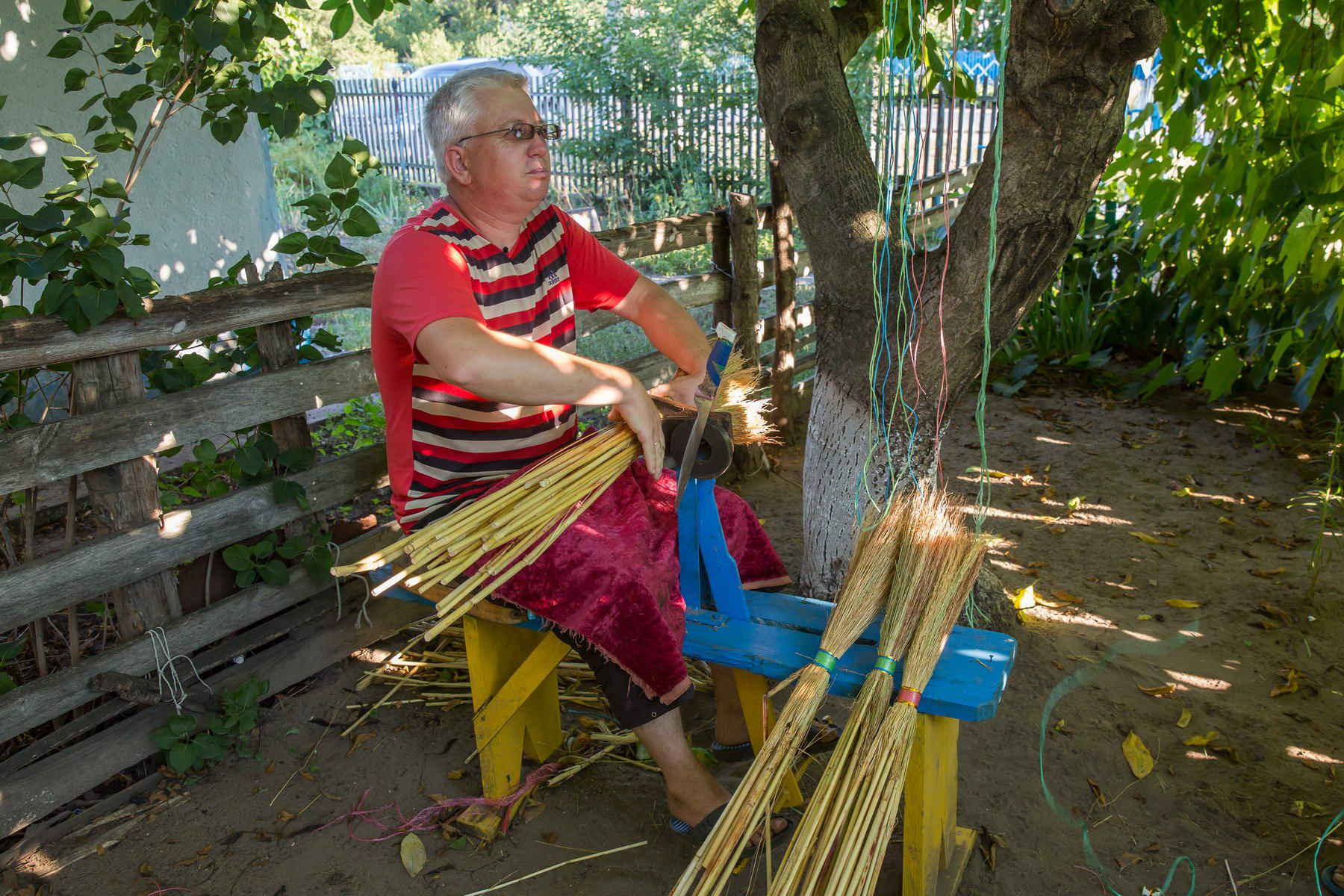Not many villages have any particular feature that would make them stand out. But the villages Savran, Osychky, and Vilshanka in Podillia have their own specialty: making wicker brooms, or “vinyky.” Locals call such brooms environmentally friendly hoovers. The lifespan of such wicker brooms is one to two years. Here, as well as in several other locations in different regions, wicker brooms are made for all of Ukraine.
Sown in spring and harvested in late summer, millet, which is used for making the brooms, “feeds” the villages for the whole year. Everyone weaves wicker brooms here: children, youth, adults, and seniors. Just half a century ago, wicker brooms manufactured in Podillia were sold all over the Soviet Union. Nowadays, they are mostly made for the Ukrainian market.
Technology and history of manufacturing
Brooms are mostly made of millet or sorghum stems. This crop grows well in local soils, so the harvest is abundant. The broom-making process starts long before the craftsman sits down to weave it. To start, millet is sown at the end of April or beginning of May. Millet is cut, dried, put in yaskas (hammocks for carrying millet), and brought home. The next step is to clean out the seeds. It takes about a month to process millet harvested from one hectare, and in the end about 2,000 brooms are made of it. Millet stems are bound together and put in three bundles, and only after that actual weaving of the broom starts. It usually takes an experienced craftsman just five minutes to weave one broom. However, everything depends on the person and his or her temperament and work speed. The broom is tied with a special rope — it is handmade especially for this. Gift brooms are also decorated with golden ribbon above the rope. Smaller brooms serve as amulets at home.
Vasyl Hudz from the village Vilshanka has been weaving brooms since he was little. He remembers his parents promising to give him a coin or to let him go play if he cleaned the proso millet. Later, boys themselves started competing in their craftsmanship: the one who would make the most bundles became cooler than the others. His parents and grandparents wove brooms, and most likely his children will weave, too:
The broom is tied with a special rope — it is handmade especially for this. Gift brooms are also decorated with golden ribbon above the rope. Smaller brooms serve as amulets at home.
Vasyl Hudz from the village Vilshanka has been weaving brooms since he was little. He remembers his parents promising to give him a coin or to let him go play if he cleaned the proso millet. Later, boys themselves started competing in their craftsmanship: the one who would make the most bundles became cooler than the others. His parents and grandparents wove brooms, and most likely his children will weave, too:
Willy-nilly, you have to weave, as you need something to live on.


Decorative brooms and magical amulets from herbs
Vira Shpytko from the village Osychky has been making brooms for many years. She calls herself an entrepreneur — she took her products to the city of Odesa and had her own business. Today she brings handmade amulets to Odesa. She weaves various compositions, in which each component has its own purpose.This is the deity who protects the house. Here we see rye, wheat, and oat — to bring the whole family together for festivities. The deity takes all the negative energy in. She comes without eyes – that is done so on purpose.








